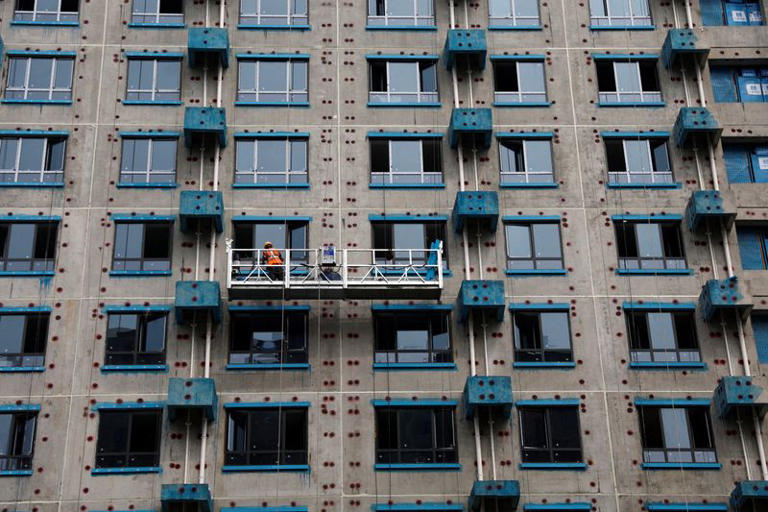In January, China experienced a moderation in the month-on-month declines of new home prices, particularly in its major cities, signifying some stabilization in the real estate market. However, despite efforts by Beijing to stimulate demand, the nationwide trend of declining prices persisted.
According to Reuters calculations based on data from the National Bureau of Statistics (NBS), new home prices decreased by 0.3% month-on-month in January. This follows a 0.4% decline recorded in December, indicating a slight improvement in the rate of decline.
China has intensified efforts to counteract a property market downturn, implementing measures such as instructing state banks to increase lending to residential projects through a “whitelist” mechanism. Additionally, several major cities, including Shanghai, have relaxed purchase restrictions to attract potential homebuyers.
In tier-one cities, home prices experienced a smaller decline of 0.3% month-on-month in January compared to a 0.4% decrease in December. This moderation can be attributed in part to supportive measures, including reductions in down-payments. Among the 70 cities surveyed by the National Bureau of Statistics (NBS), Shanghai recorded the most significant month-on-month increase, rising by 0.4%. Meanwhile, tier-one cities like Beijing, Guangzhou, and Shenzhen witnessed smaller declines in home prices compared to most tier-two and tier-three cities.
Although the number of cities experiencing monthly price declines decreased in January, the overall market continued on a downward trajectory, reflecting persistently weak buyer sentiment.
Despite a low statistical base in January 2023, when prices dropped 1.5% year-on-year due to COVID-19 disruptions, home prices in China fell 0.7% from a year earlier in January 2024, marking the sharpest decline in 10 months. Nie Wen, an economist at Hwabao Trust, expressed concerns that home price declines could persist, suggesting that it might take more than a year for the entire property market to fully recover and rebound.
Central bank data released on February 9 revealed a significant increase in household loans, predominantly mortgages, which climbed to 980.1 billion yuan in January compared to 222.1 billion yuan in December. However, Nie noted that these loans are not primarily being utilized for home purchases but rather for personal consumption.
Nie emphasized that residents will only invest in the medium to long term, including buying property, when their income expectations improve. The property market in China has faced challenges in stabilizing since 2021, primarily due to a series of defaults among overleveraged developers.
In response to the challenges faced by the property market, policymakers in China have persisted in rolling out measures aimed at boosting market confidence. The country’s central bank recently announced its most significant reduction ever in the benchmark mortgage rate. However, analysts caution that the impact of this move on home prices may be limited, as existing mortgage holders will not benefit from the rate reduction until the following year.
Zhang Dawei, an analyst at property agency Centaline, emphasized that it will take time for homebuyers’ incomes and confidence, as well as overall demand, to recover in the property sector. He noted that the sector is still in the process of gradually bottoming out, indicating that sustained efforts may be needed to stimulate a more robust recovery.
